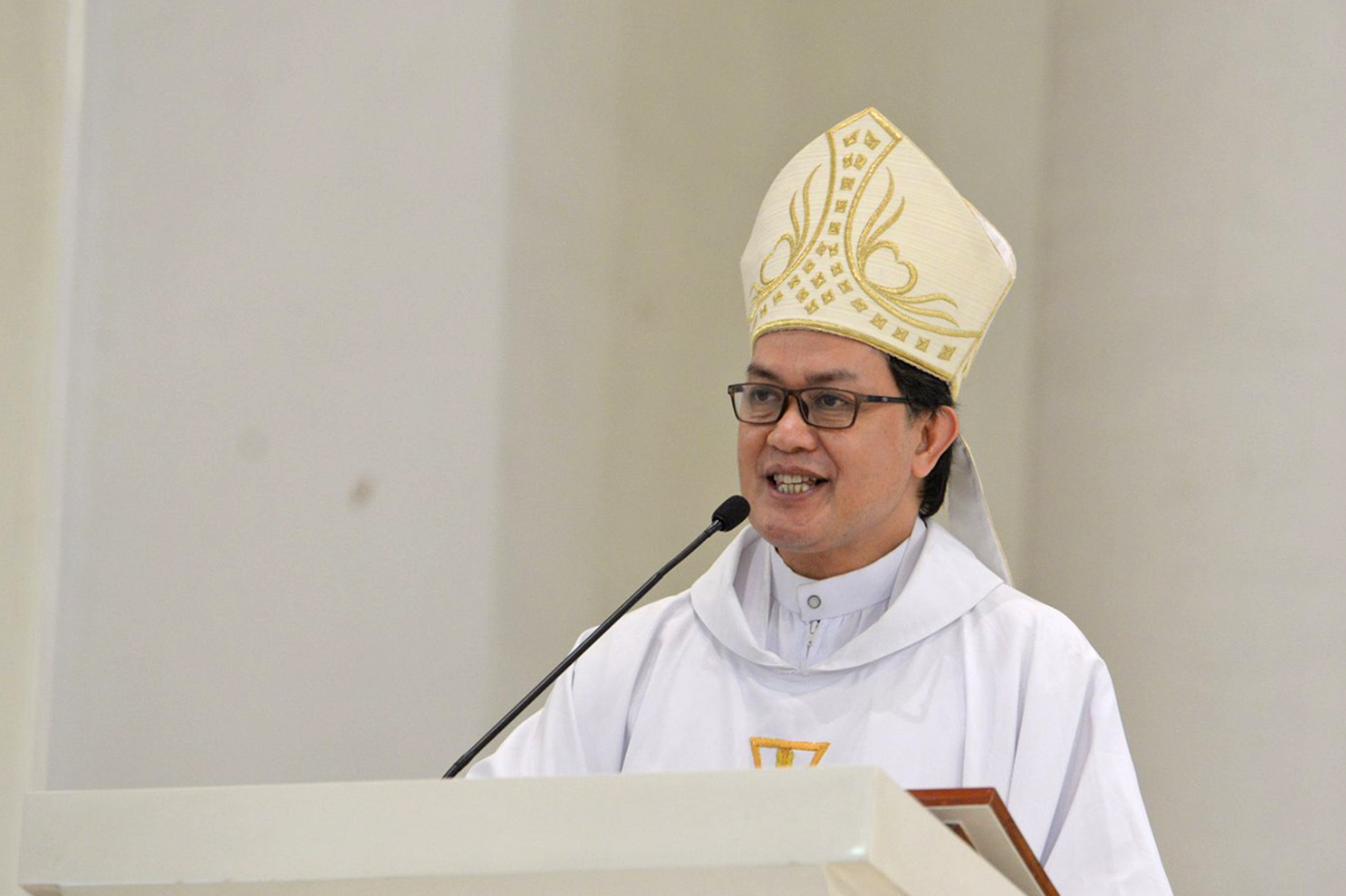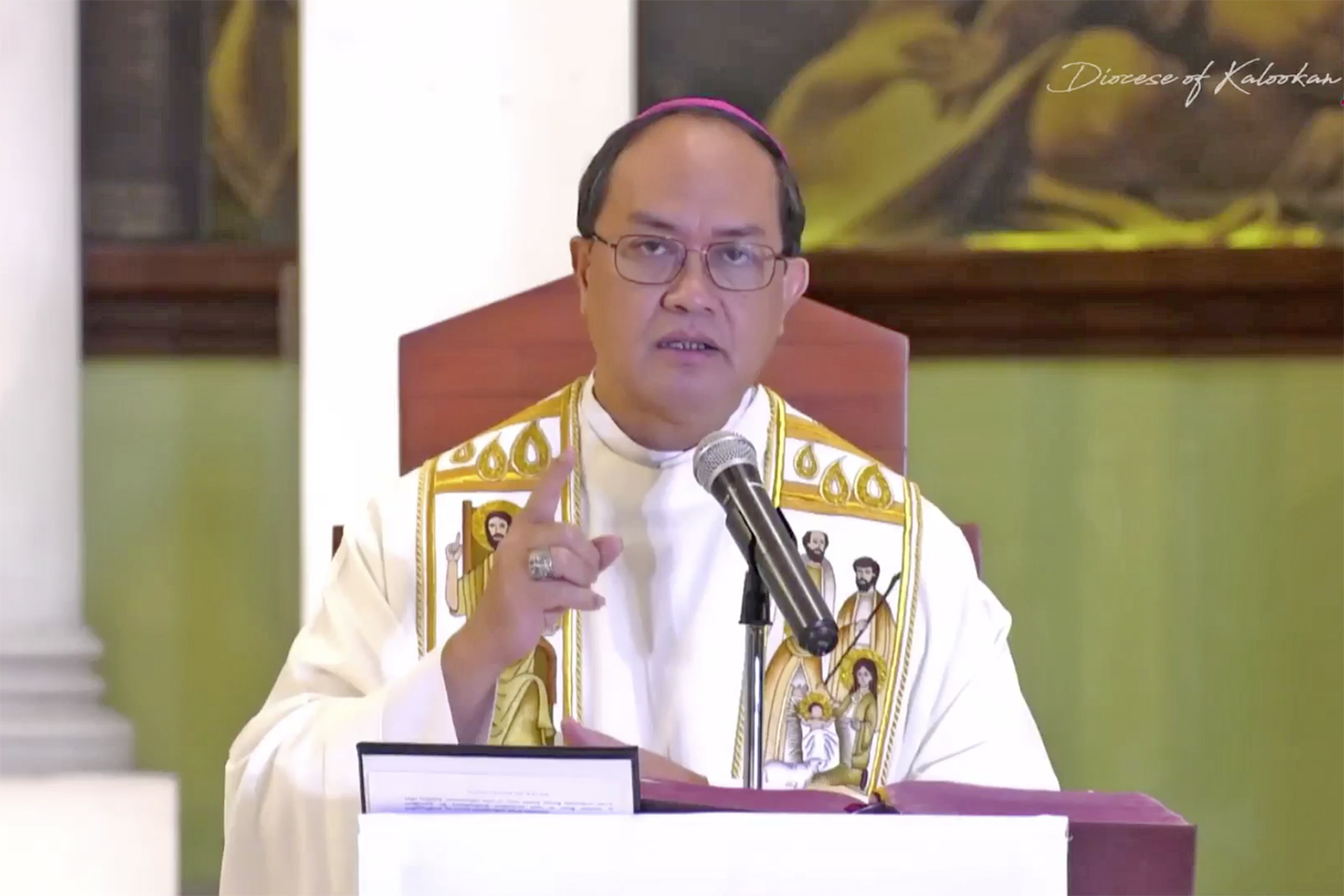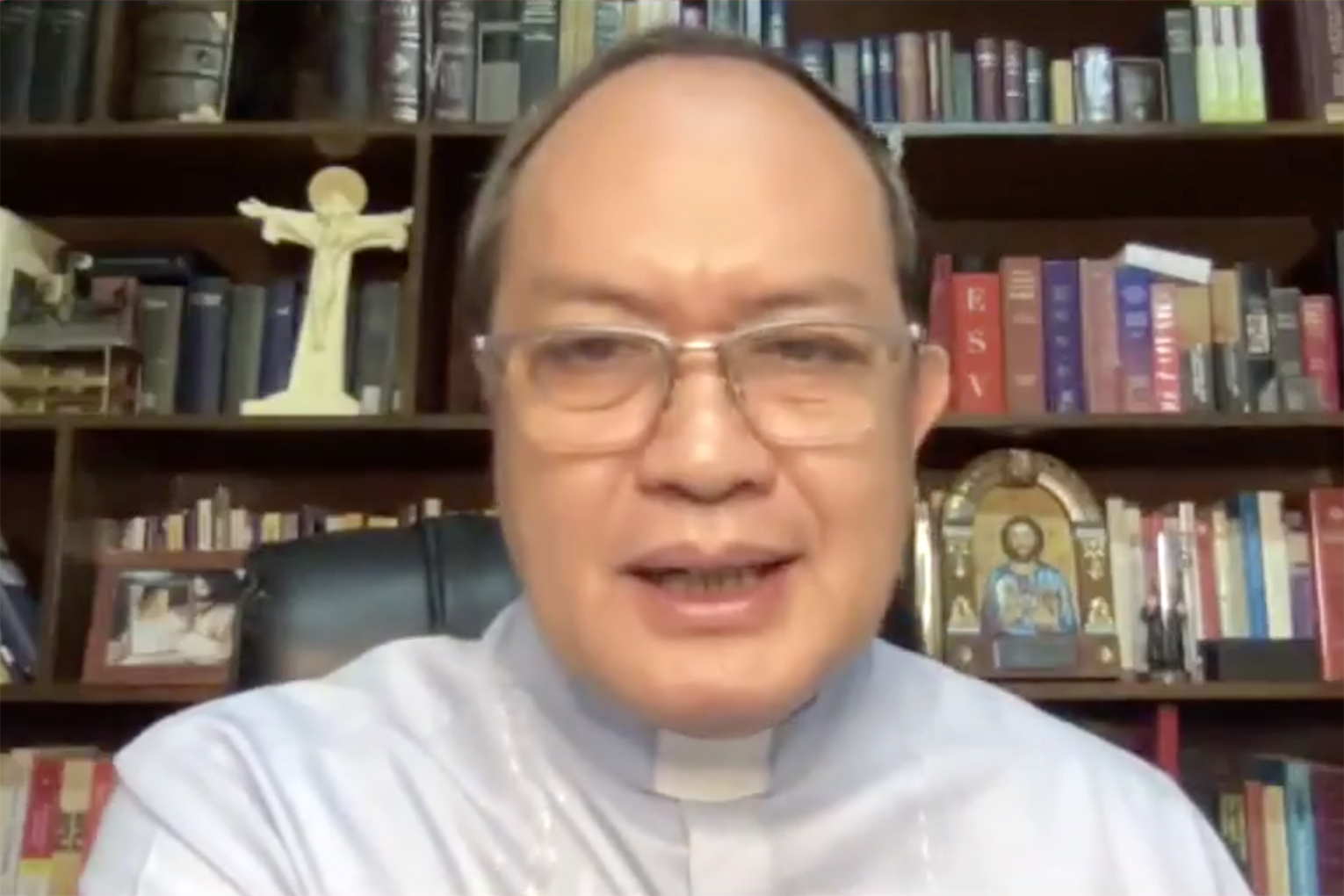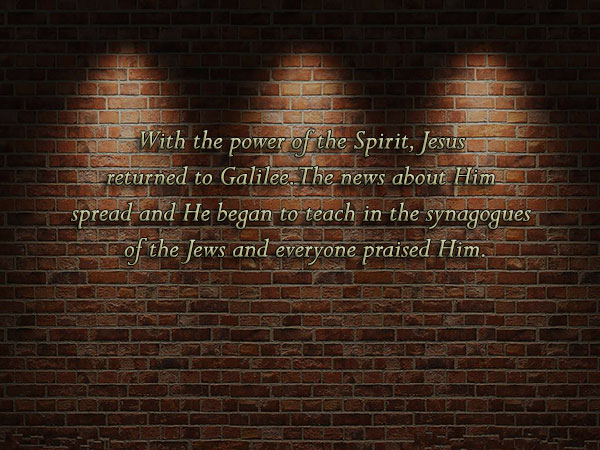Kalookan prelate accepts request to go to frontline in Duterte’s war on drugs and offer slum dwellers much-needed support
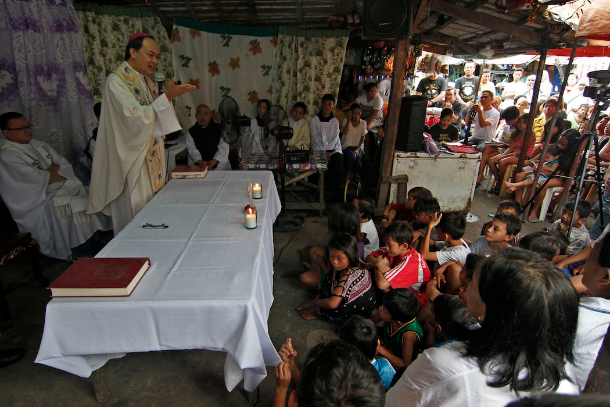
Joe Torres, Manila
Philippines
February 7, 2019The letter arrived at the bishop’s residence in Kalookan, a diocese north of Manila, a few days after the New Year celebrations ended.
The handwritten message came from a group of boys who asked their bishop’s “permission” to celebrate Mass in their community.
“We are asking permission for you to celebrate Mass at Market 3 … because that is where we live,” read the letter, which was written in Filipino and addressed to Bishop Pablo Virgilio David.
“We believe that if you bless our community peace will be granted from God,” wrote the children. They then promised to introduce the bishop to their “parents, siblings and the community who are all seeking peace.
“The children said “lives would change a lot, especially those of people addicted to illegal drugs,” if the bishop would come and celebrate Mass.
They expressed hope that no more lives would be lost due to drugs and that drug-related killings would stop because many innocent lives had already been lost.
Market 3, Navotas
Market 3 in the coastal city of Navotas, north of Manila, is a sprawling slum where about 5,000 people live in a maze of sheet metal, crumbling concrete and wooden boards that people call their homes.
Crimes, from petty to serious, are rampant, and illegal drugs proliferate in the community of workers at the nearby fish port who believe that using “shabu,” a slang term for methamphetamine, will help them survive hunger and sleepless nights.
The Market 3 area was thrust to the forefront of the government’s bloody war on illegal drugs after President Rodrigo Duterte came to power in 2016 promising to rid the country of narcotic-related crimes.
After that, police began knocking on doors more calling on drug dealers to surrender. There are times when these police operations end in tragedy with suspects reportedly fighting back, according to the authorities.
There are nights too when, instead of policemen, masked men roam alleys and drag away suspected drug users and dealers, only for them to be found later with a bullet in the head.
In January 2017, the entire slum almost burned to the ground. Authorities said the blaze started inside a drug den that caught fire. In a matter of days, people rebuilt their community, but the killings and abductions have continued.
‘War zone in disguise’
A report released in January by the U.S.-based non-government group Armed Conflict Location and Event Data Project labeled the Philippines as a “a war zone in disguise.”
The organization cited the killings of over 1,000 people in 2018, attributing them to the Duterte administration’s war on drugs as proof of its claim.
The same report placed the Philippines alongside Syria, Nigeria, Yemen and Afghanistan as among the deadliest countries for civilians in 2018.Syria topped the list with more than 7,100 civilians killed, while a combined total of about 7,600 were slain in Nigeria, Yemen, Afghanistan and the Philippines, which occupied the next four slots, according to the report.
The Philippine government described the report as ignorant and biased and accused local and foreign media of disseminating fake news. The Philippine Drug Enforcement Agency, however, said that 5,104 “drug personalities” had died between July 1, 2016, and Dec. 31, 2018, during police operations.
Figures from the government’s #RealNumbersPH report also showed that 167,135 people had been arrested during the same period.
In December 2018 alone, 54 drug suspects were killed while 2,870 were arrested.
The Philippine National Police admitted to 4,540 deaths during anti-drug operations since 2016. It added that another 23,000 deaths remained under investigation.
Most of the killings and arrests occurred in urban poor communities like Market 3 in Bishop David’s diocese.
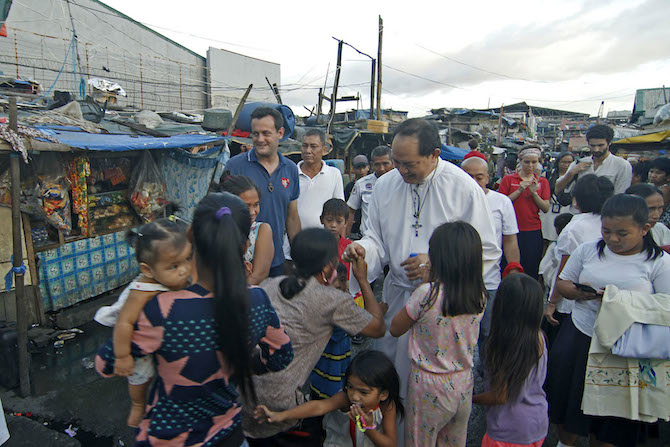
A bishop’s story
The children’s letter was “an invitation that could not be refused” by the bishop. He himself admitted that he felt the children’s strong desire for peace and an end to violence and killings in their community.
A week after receiving the letter, Bishop David decided to accept the children’s invitation and visit the community.
On a pleasant afternoon in the middle of January, the children finally welcomed their bishop. They led him to a makeshift chapel in the middle of the shanties that they call home.
In his homily, Bishop David shared the story of an eagle that grew up believing he was a chicken because he was brought up by one. At the end of the story, the eagle realized he was an eagle after seeing another eagle, and soared up high into the skies.
When the bishop asked the community about the moral of the story, one of the children said “How to be an eagle?”
It drew laughter from the crowd.”We are like the eagle that fell from the nest,” Bishop David answered. “
Christ is the soaring eagle that landed and stayed to show us how to fly and soar into the vast skies.” He reminded them not to act with cruelty to others amid the challenges they face. Cruelty and persecution turn perpetrators into animals, he said. “It is easy to be human but it is difficult to act as one,” said Bishop David.
Days after his visit, armed Philippine Drug Enforcement Agency agents swooped on Market 3 and arrested 16 suspected drug users and dealers, including 12 minors.
Authorities said drug syndicates were using children as “runners” to transport drugs from sellers to clients.
“Children should never be treated as criminals, not even when they get caught doing errands for pushers and suppliers,” the prelate posted on his social media account on learning of the arrests.
“They should rather be treated as victims who need to be rescued from adults who use them for their criminal activities.” In a media briefing during the last week of January, government officials claimed that 927 children aged 10-17 were rescued in drug operations last year. Not included in the report were the 54 children reported killed during operations since 2016 based on data gathered by the non-government Children’s Legal Rights and Development Center.
Also not listed were the 32,395 children who lost their parents to the drug war, according to a study by the Ateneo School of Government.
Vincent Go contributed to this story.



